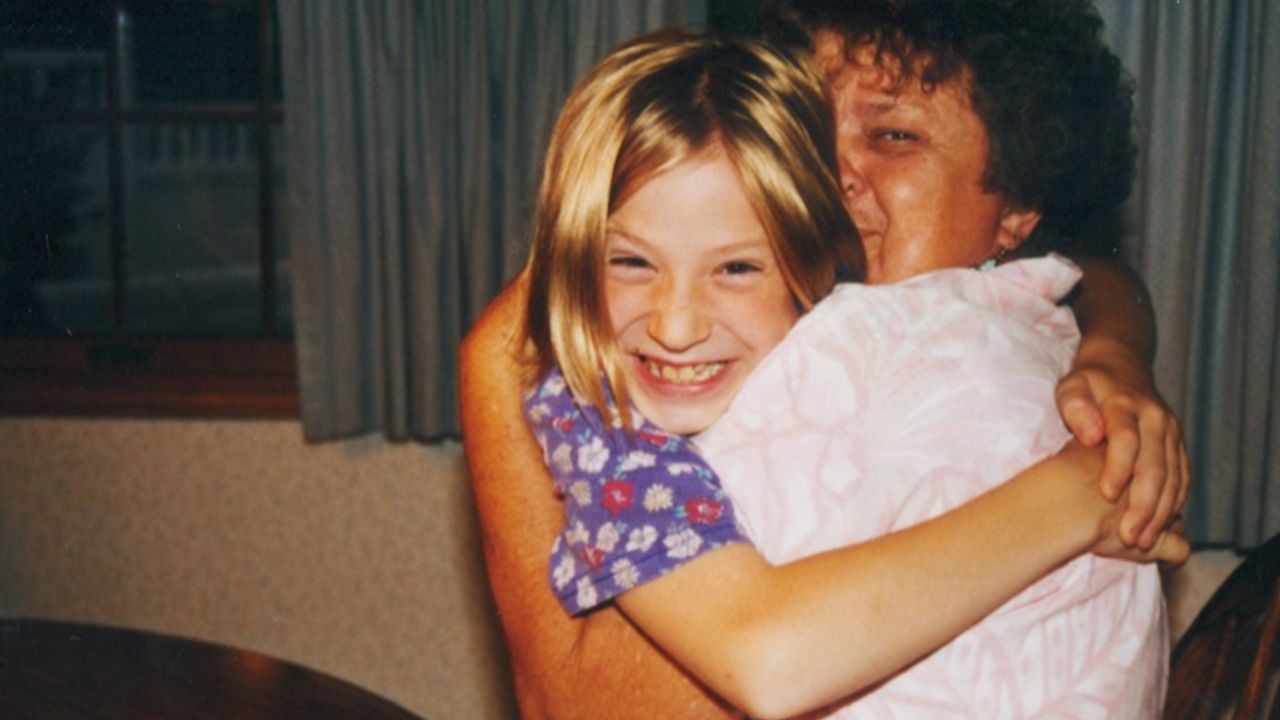JANESVILLE, Wis. — You may not realize it, but odds are you probably know someone who either has an alcohol or drug addiction or, at the very least, is recovering from one.
Many people don’t know this because those struggling often hide it due to the stigma, which is why a mother from the Janesville area has spoken out about alcohol — a substance that took her daughter’s life yet surrounds many in the Badger State as a normalized substance part of social culture.
Jenny Hallett now hangs on to the memories of her daughter Brittany Rose Hallett.

“Brittany was just a very loving person,” Jenny Hallett said. “She was a straight-A student her entire life, and that was due to her own drive.”
Jenny Hallett’s daughter came to live with her after she split up with her boyfriend and tried to get back on her feet. It didn’t take long for her mom to realize there was a bigger problem.
“My son called me at work one day and said that she was talking to people that weren't in the room,” Jenny Hallett recalled. “So, she was literally hallucinating, which I have now found out is a sign of alcohol withdrawal. That was really when I realized that there was a real major problem.”
Brittany Hallett’s family sent her to the hospital for the help she needed, and after she was released, they did their best to give her a fresh start and found her a two-bedroom apartment so she could live with someone else in recovery.
However, a few days later, Brittany Hallett drank again, so her mother brought her home instead. That’s when Jenny Hallett said her daughter’s addiction spiraled.

“That's exactly where the alcohol took her down,” Jenny Hallett explained. “She drank on campus, just like all her friends did, but it affected her dramatically differently. It's definitely a disease. Your brain adapts to the alcohol, and at that point, people are drinking or taking drugs to feel normal again.”
Jenny Hallett described her daughter’s addiction as acute and said that at one point, she had the highest blood-alcohol level (BAC) an emergency room doctor had ever seen someone survive at 0.62%.
Eventually, Brittany Hallett ripped a hole in her esophagus after vomiting from withdrawals. She had less than a 50% chance of surviving surgery. Later that year, Jenny Hallett wanted to keep her daughter in a hospital atmosphere instead of sending her to detox to prevent her daughter from re-ripping the hole.
“There's stigma even in the medical world,” Jenny Hallett added. “There really is, and some of the doctors were wonderful, but many of them, truly, just treated me also like I was scum."

Insurance wasn’t an easier process to go through either, according to Jenny Hallett.
“She went through this like a good year-and-a-half of severe hospitalizations, going to treatment and that kind of thing, and every time that she needed help, she had go through getting an assessment, which you got to wait a week or two. So, she went to all types of treatment, but there was just so much red tape to get her help,” Jenny Hallett said.
To make matters worse, before Brittany Hallett passed away, she turned 26 and was no longer on her father’s health insurance plan.
After her daughter’s death, Jenny Hallett discovered she had applied for disability due to alcohol addiction. She suspects it was an effort to get the interest frozen on her student loans, but Brittany Hallett’s request was ultimately denied.
“I feel like if she would have gotten that letter, it would have crushed her, and I probably never would have even known she had gotten it,” Jenny Hallett added.
Once Brittany Hallett couldn't go to college because of the addiction, her student loan debt started accruing interest. Yet, according to her mother, she couldn't even get out of bed to save herself.
“It's a horrifying, horrifying disease to witness, to see your daughter slowly die, and no one will help,” Jenny Hallett said. “And there's nowhere to send them, and you don't know what to do to help them, and I was labeled an enabler. I know people that are alive today because they were thrown out of the house. I know it can work. I know that, and I know people that's worked on, but there’s tens of thousands more that that didn’t work on, but you don’t hear about it because they’re dead. And my daughter, you know, I had people telling me to do that. That would not have worked with her.”
Jenny Hallett came home on Nov. 5, 2014, to find Brittany Hallett had passed away in bed at 26 years old. Her long-term alcohol use caused a heart arrhythmia.
Wisconsinites have a free, confidential way to find lifesaving, high-quality addiction treatment.
Visit treatmentatlas.org
Shatterproof Treatment Atlas is funded by a grant from the Wisconsin Department of Health Services.










